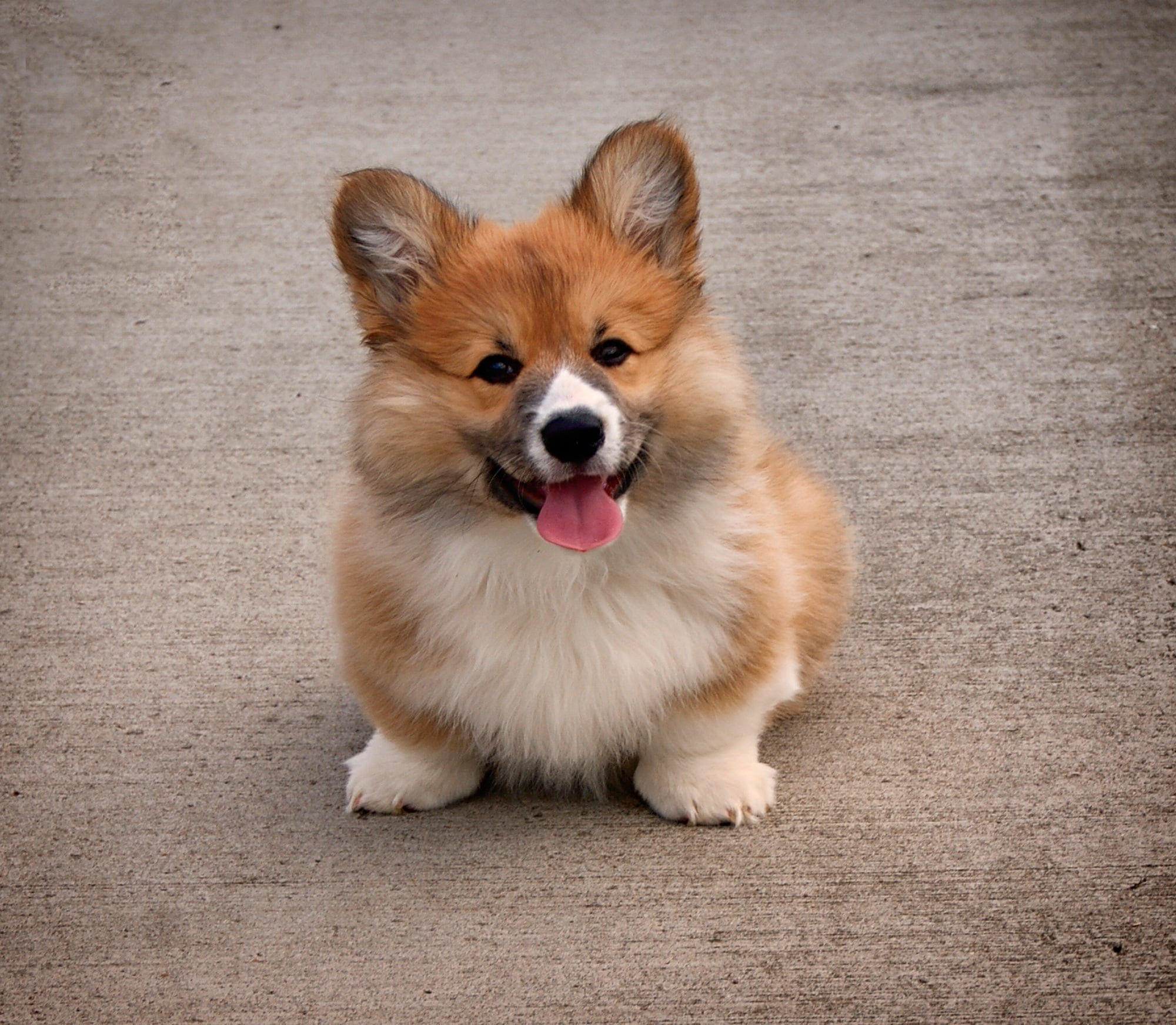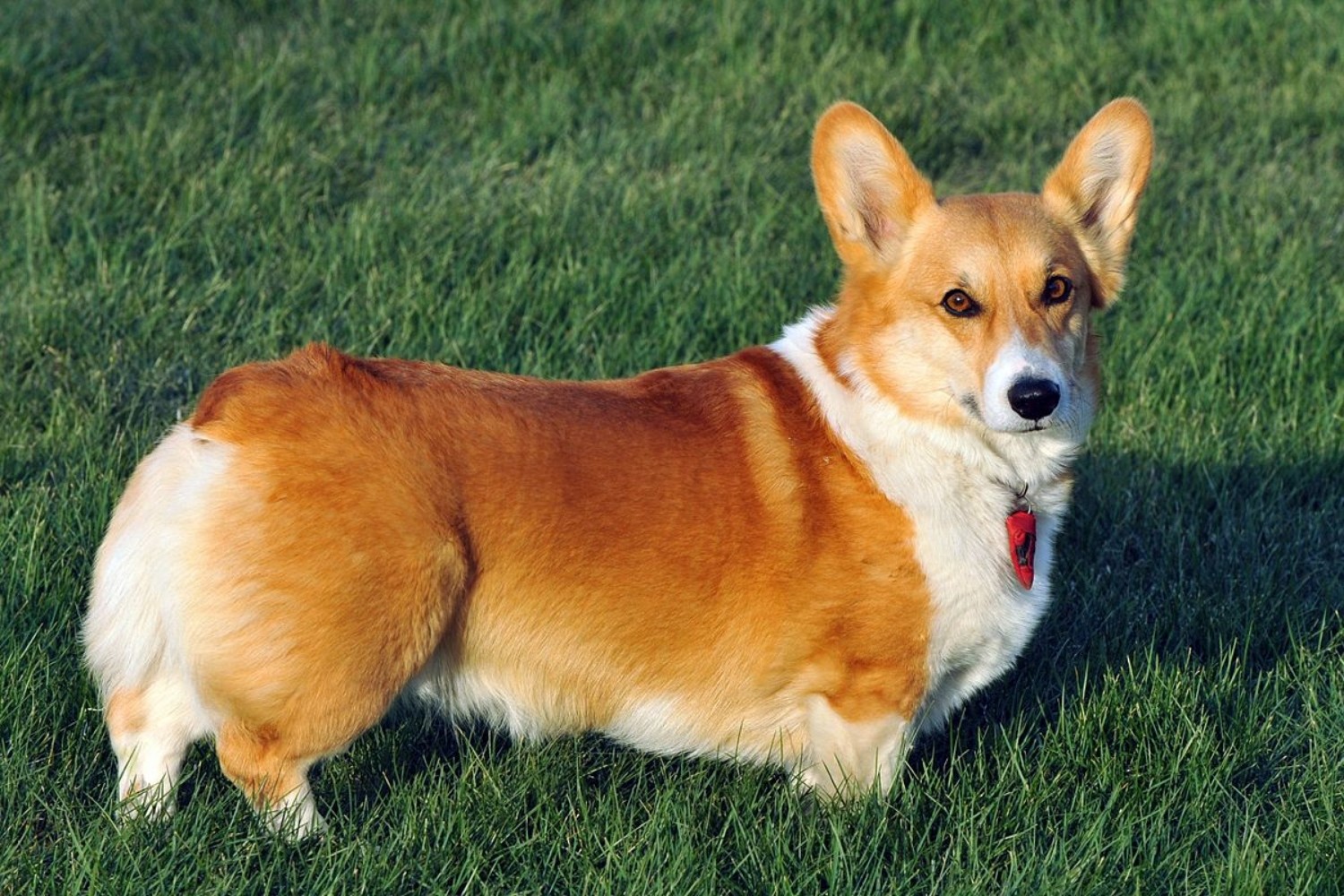There’s no denying that corgi dogs have captured the hearts of millions worldwide with their charming personalities and unique appearances. These delightful little herding dogs, originally bred in Wales, have become a global sensation. Whether you're considering bringing a corgi into your home or simply want to learn more about this beloved breed, this comprehensive guide will provide you with all the information you need to know.
Corgi dogs are not just cute; they are intelligent, loyal, and full of character. Their popularity has soared thanks to their association with British royalty, particularly Queen Elizabeth II, who has owned several corgis throughout her reign. But beyond their royal connections, corgis are wonderful pets for families, singles, and even seasoned dog owners.
In this article, we’ll delve into everything you need to know about corgi dogs, from their history and physical characteristics to their care requirements and health considerations. Let’s explore why corgis are so special and how you can ensure they lead happy, healthy lives.
Read also:Bossa Nova Bushwick A Vibrant Fusion Of Brazilian Music And Brooklyn Culture
Table of Contents
- History of the Corgi Dog
- Types of Corgi Breeds
- Physical Characteristics of Corgi Dogs
- Corgi Temperament and Personality
- Caring for Your Corgi Dog
- Corgi Health and Common Issues
- Nutrition and Diet for Corgi Dogs
- Training Your Corgi Dog
- Lifestyle Considerations for Corgi Owners
- Famous Corgis in Pop Culture
History of the Corgi Dog
The corgi dog has a rich history that dates back centuries. Originating from Wales, the breed was primarily used as a herding dog for cattle, sheep, and horses. There are two distinct types of corgis: the Pembroke Welsh Corgi and the Cardigan Welsh Corgi. While they share some similarities, each breed has its own unique traits and history.
Historians believe that corgis were brought to Wales by Flemish weavers around the 10th century. Over time, these dogs evolved into the corgis we know today, becoming integral members of farming communities. Their short stature allowed them to nip at the heels of livestock without being kicked, making them effective herding dogs.
Evolution of the Corgi
The evolution of the corgi dog is fascinating. Early corgis were bred for functionality, with their physical attributes designed to suit their working roles. Over the years, selective breeding has refined their appearance while maintaining their intelligence and work ethic.
- Pembroke Welsh Corgis are believed to have been influenced by Swedish Vallhunds.
- Cardigan Welsh Corgis, on the other hand, are thought to have descended from the Teckel family of dogs.
Types of Corgi Breeds
There are two main types of corgi dogs: the Pembroke Welsh Corgi and the Cardigan Welsh Corgi. While they share some similarities, there are key differences between the two breeds.
Pembroke Welsh Corgi
The Pembroke Welsh Corgi is the more popular of the two breeds and is often associated with British royalty. These corgis are slightly smaller than their Cardigan counterparts and typically have straighter legs. They also lack the characteristic long tail of the Cardigan Welsh Corgi.
Cardigan Welsh Corgi
The Cardigan Welsh Corgi is the older of the two breeds and is distinguished by its longer body and bushy tail. This breed tends to be slightly larger and heavier than the Pembroke Welsh Corgi. Both breeds are equally affectionate and loyal, making them excellent companions.
Read also:Olans Prenatt A Comprehensive Guide To The Rising Star
Physical Characteristics of Corgi Dogs
Corgi dogs are known for their distinctive appearance, which includes their short legs, long bodies, and expressive faces. These physical traits make them instantly recognizable and incredibly endearing.
Their coats come in a variety of colors, including red, sable, black, and tan. Corgis have double coats, which provide insulation during colder months and protection from the elements. This coat type also means they shed quite a bit, so regular grooming is essential.
Size and Weight
Both Pembroke and Cardigan Welsh Corgis are considered small to medium-sized dogs. On average, they weigh between 25-30 pounds and stand about 10-12 inches tall at the shoulder. Their compact size makes them ideal for apartment living, but they still require plenty of exercise and mental stimulation.
Corgi Temperament and Personality
Corgi dogs are renowned for their friendly and outgoing nature. They are highly intelligent and eager to please, which makes them relatively easy to train. However, their herding instincts can sometimes manifest in behaviors like nipping at heels or trying to "herd" people and other animals.
Corgis are also known for their sense of humor and playful demeanor. They enjoy interacting with their human companions and thrive on attention and affection. Despite their small size, corgis have big personalities and are not afraid to speak their minds.
Common Personality Traits
- Intelligent and quick learners
- Playful and energetic
- Loyal and protective of their families
- Occasionally stubborn but trainable with patience
Caring for Your Corgi Dog
Proper care is essential for ensuring your corgi dog leads a happy and healthy life. From grooming to exercise, there are several aspects of care that every corgi owner should be aware of.
Grooming Needs
Corgis have double coats that require regular brushing to prevent matting and reduce shedding. Weekly brushing is recommended, and during shedding seasons, daily brushing may be necessary. Bathing should be done as needed, but over-bathing can strip the coat of its natural oils.
Exercise Requirements
Despite their small size, corgis are active dogs that need daily exercise. A brisk walk or play session in the yard is sufficient to keep them happy and healthy. Mental stimulation through puzzle toys or training sessions can also help satisfy their curious minds.
Corgi Health and Common Issues
Like all breeds, corgi dogs are prone to certain health issues. Responsible breeding and regular veterinary care can help mitigate these risks. Some common health concerns include:
- Intervertebral Disc Disease (IVDD): Due to their long backs, corgis are at higher risk for spinal issues.
- Canine Degenerative Myelopathy: A progressive neurological disorder that affects mobility.
- Obesity: Corgis have a tendency to gain weight if their diet and exercise are not properly managed.
Preventive Care
Regular vet check-ups, a balanced diet, and plenty of exercise are crucial for maintaining your corgi's health. Early detection of potential issues through routine screenings can significantly improve outcomes.
Nutrition and Diet for Corgi Dogs
Providing your corgi with a balanced and nutritious diet is vital for their overall well-being. High-quality dog food that meets their specific nutritional needs should be the foundation of their diet. Portion control is important to prevent obesity, which can exacerbate existing health issues.
Feeding Guidelines
- Feed adult corgis twice a day to avoid overeating.
- Choose a dog food formulated for small to medium breeds.
- Limit treats and table scraps to maintain a healthy weight.
Training Your Corgi Dog
Corgis are intelligent dogs that respond well to positive reinforcement training methods. Early socialization and obedience training are key to raising a well-behaved corgi. Consistency and patience are essential, as corgis can sometimes exhibit stubborn tendencies.
Training Tips
- Use treats and praise to reward good behavior.
- Keep training sessions short and engaging to maintain their interest.
- Address herding instincts through structured activities like agility training.
Lifestyle Considerations for Corgi Owners
Before bringing a corgi dog into your home, it's important to consider whether your lifestyle is compatible with their needs. Corgis thrive in environments where they receive plenty of attention and interaction. While they adapt well to apartment living, they still require daily exercise and mental stimulation.
Ideal Living Conditions
- Homes with access to outdoor space are ideal, but not mandatory.
- Families or individuals with time to dedicate to their care.
- Owners who can provide regular exercise and mental enrichment.
Famous Corgis in Pop Culture
Corgi dogs have made a name for themselves in pop culture, thanks in part to their association with British royalty. Queen Elizabeth II's love for corgis has brought them into the spotlight, but they have also appeared in movies, TV shows, and even video games.
Corgis in Media
- Disney's "The Story of Robin Hood and His Merrie Men" features a corgi as one of the characters.
- Video games like "Animal Crossing" feature corgi characters that players can interact with.
Kesimpulan
Corgi dogs are truly remarkable companions, combining intelligence, loyalty, and charm in one delightful package. Whether you're drawn to their royal heritage or simply their adorable appearance, corgis have much to offer as pets. By understanding their history, physical characteristics, temperament, and care requirements, you can ensure that your corgi leads a fulfilling life.
We encourage you to share this article with fellow corgi enthusiasts or leave a comment below sharing your experiences with these wonderful dogs. For more information on corgis and other dog breeds, explore our other articles on the site.
Data Sources: American Kennel Club, Britannica, VCA Hospitals.


